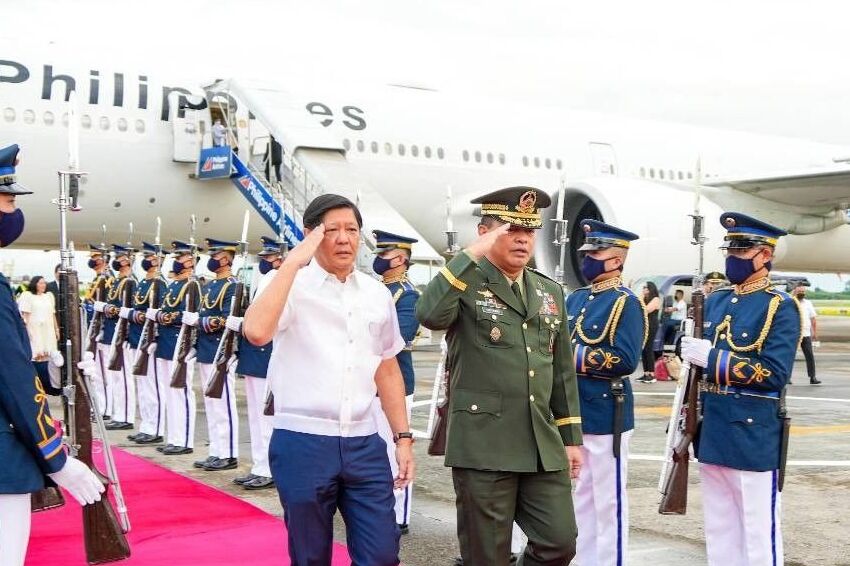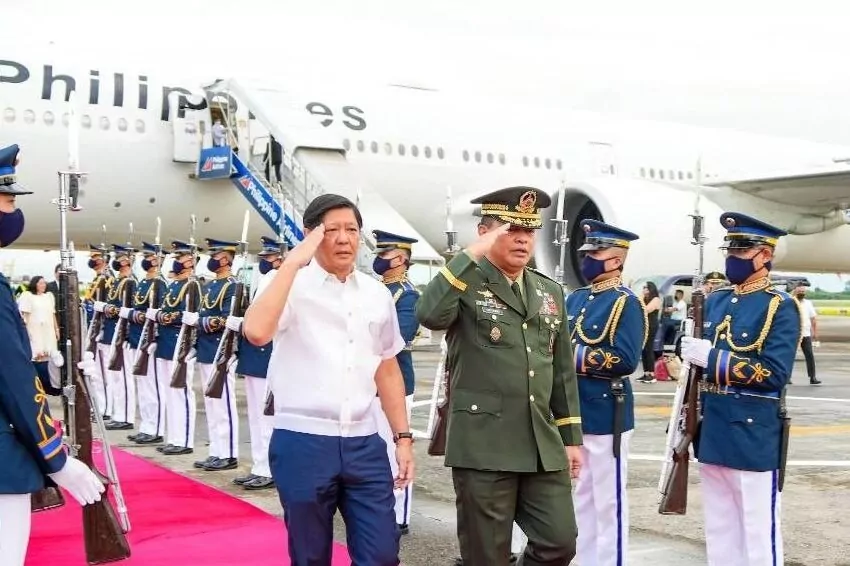

(c) Philippine Star
After concluding his official tour to Japan, President Ferdinand Marcos Jr. said that he and his Cabinet will analyze all foreign investment promises made during his nine travels abroad as Philippine president.
Marcos stated that the goal of the meeting would be to prioritize the signed agreements and establish the required next steps to make the commitments a reality.
“The reason I said ‘let’s stop all of these trips’ is because we’re going to sit down and discuss every single project we’ve discussed in ASEAN, APEC, EU, New York, China, and Japan,” Marcos said in an interview with reporters on a flight back to Manila from Japan on Sunday, February 18.
“We must return to all of that. We’ll examine each one to determine which ones are most desirable. Which ones should take precedence? What must be done to fix it?” He included Filipino.
So far, Marcos’s tours have yielded a projected total of $54.2 billion in investment commitments.
This consists of $22.8 billion from China, $13 billion from Japan, $3.9 billion from New York, $14.35 billion from Indonesia and Singapore, as well as $179 million from Brussels.
Marcos made the statements after being asked what the government would do to assure the fulfillment of investment agreements.
Earlier, Trade Secretary Alfredo Pascual told reporters that after receiving billions in foreign promises to date, it is now the Philippine government’s responsibility to guarantee that they transform into actual projects.
The Philippines fell behind its neighbors in the past due to its inability to meet international business concerns.
The Association of Southeast Asian Nations reported in 2021 that foreign direct investments in the Philippines totaled $12.4 billion, which was less than the $15.6 billion and $14.64 billion invested in Vietnam and Thailand, respectively.
“We had the ball. We need to take a shot and score,” Pascual stated.
Marcos stated that during talks with Japanese companies, executives highlighted worries about value-added tax refunds, sluggish regulatory procedures, and the need to upskill Filipino labor.
Foreign businesses have long complained about the Philippines’ high energy prices and inadequate logistics and infrastructure.
Marcos sought to persuade foreign investors to expand their operations in the Philippines by highlighting changes already made to the Public Service Act allowing for full foreign ownership in select utilities such as telecommunications, the Build-Operate-Transfer Law, and public private partnerships.
He also vowed to make it easier for foreign investors to make substantial investments in the Philippines.
“It depends on us. Talagang i-follow up natin, pagandahin natin ng mahusto at mabubuo yan. Eh kung basta’t hanggang pirmahan lang, wala talagang mangyayari diyan,” Marcos added.
(It depends on us. We’ll continue and end the discussion. If the transaction closes with only a signature, nothing will really occur.)
With his ninth trip overseas, Marcos is under more pressure to prove that his time away from the Philippines would result in actual investments. He is also under pressure to address inflation-driven price increases for products and services, as well as shortages of some agricultural commodities.
Marcos simultaneously serves as the secretary of agriculture.
Read More:- Pregnant Rihanna’s performance of “Diamonds” during the Super Bowl was dazzling
The unveiling of an instrument that may symbolize a step toward updating the country’s financial identity is the celebration of…
Big investment company KKR is close to finishing its purchase of Japanese medical equipment manufacturer Topcon as private equity firms…
Indeed, it is, and it marks a milestone in medical research as it transpired that doctors in China successfully transplanted…
Many fans and industry professionals saw Prithviraj Sukumaran's L2 Empuraan movie release on Thursday as a mixed success that gained…
Filipina teenager Alexandra Eala, 19 year old girl has achieved one of the biggest milestones in WTA season by defeating…
After waiting for a solid six years, Marvel Studios has divulged its next Avengers movie—Avengers: Doomsday. And the cast is…
This website uses cookies.
Read More